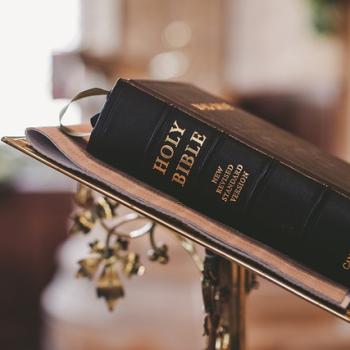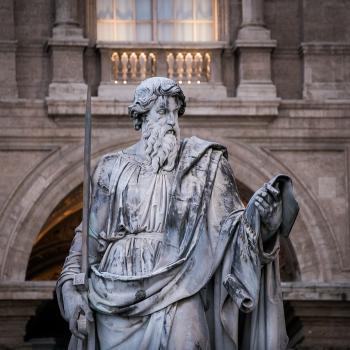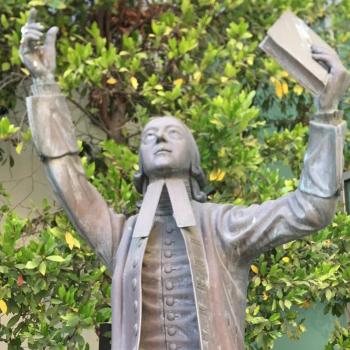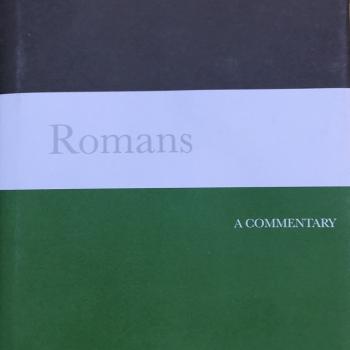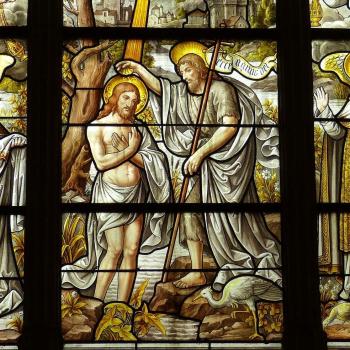This is the third and final instalment of a trilogy on the book, Paul, Then and Now by Matthew Novenson (Eerdmans, 2022). Part 1 was a review of the book, part 2 started an interview with Dr. Novenson, and now in part 3 we conclude the interview. We cover topics on whether the Apostle Paul believes that other gods exist, the Spirit (pneuma), and the future of Paul’s theology.
Second Part and Conclusion to the Interview: More Questions and Answers
Oropeza:
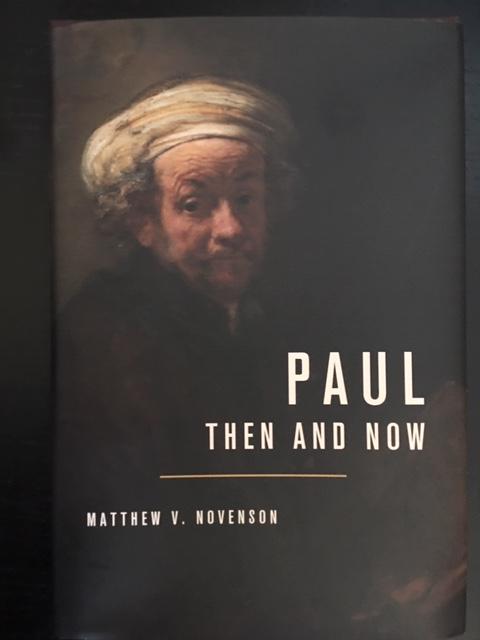
In relation to God and Christology in the book, you bring up a very interesting point that I am still wrestling with—that Paul believes in the existence of other gods. You bring up that what Paul condemns is devotion to these other gods; he does not deny their ontological existence (pp. 56–65).
However, in 1 Corinthians 8:4–6 that you cite in support of this (“many gods and many lords”) the context has to do not just with devotion but knowledge, as 1 Cor 8:1–3 clarifies. I understand the problem in Corinth as the “strong” believers having knowledge that there are no other gods except the one true God and the Lord Jesus. Therefore they surmise that they have nothing to worry about when eating idol foods, even in idol precincts.
It is the “weak” believers who think these gods, represented by idols, exist. So for them to eat, they risk falling back into worshipping these gods. The point here is that Paul agrees with the strong that “for us” there is only one God, the Father, and one Lord Jesus (1 Cor 8:6). He does not disagree with them about this knowledge; what he doesn’t want is for them to become a stumbling block to the weak members because of their knowledge.
At the same time, I have to concede that, at face value at least, Paul considers Belial or Satan as the “god of this age” (2 Cor 4:4).[1] But then again, at face value, Paul also seems to support the ontological non-existence of other gods. He claims that the Galatians were once enslaved by what are by nature no gods, but now they have come to know the real God (Galatians 4:8–9). Paul obviously uses the term “god” more flexibly than we do today, but I’m wondering if we can get a little more consistency here. Any thoughts?
Novenson:
You’re right that Paul’s terms for various non-obvious beings, especially in 1 Corinthians 8–10, are a bit slippery (“no god but one” but also “many gods and many lords”). They are not easy to fit in a system, let alone a highly specific system like fourth-century creedal orthodoxy.
But I actually do think his discourse there makes pretty good sense, at least in its main lines. An idol (1 Corinthians 8) is nothing in the cosmos; that is, the actual statue of the god is not a thing to be worshiped or feared. But demons (1 Corinthians 10) are very real, and are to be feared.
That’s why Christ-believers absolutely must not commune with them. These are “gods” in the sense Paul allows in 1 Corinthians 8. Elsewhere, though, he reserves the name “god” for something mightier than demons. The stoicheia in Galatians 4 are by nature something lesser than gods. But they, too, are real non-obvious beings (“godlings” Paula Fredriksen has called them, aptly).
The god of this world in 2 Corinthians 4 is, I think, yet another one of these gods who is not as deserving of the name “god” as god (the one who raised Jesus from the dead) is. Belial and Satan could be still others of these.
Oropeza:
In chapter 5 of the book, you bring up five common themes in Romans and Galatians, which include: 1) the righteousness of God; 2) faith/trust; 3) a polemic against the “works of the law”; 4) discussion on Abraham; and 5) the Spirit (pneuma).
You also bring up (rightly in my view) that if we include all Paul’s letters, then Messianism and apocalyptic, are more central to Paul. I would add the centrality of the Spirit, too, not only in Romans and Galatians but also his other two major letters, 1 and 2 Corinthians. One cannot, in my view, participate “in Christ” without the Spirit.
For about a decade now, I have been thinking about Troels Engberg-Pedersen’s pneuma as fine imperishable matter, and I still haven’t made up my mind about it. Since you seem to agree him, I want to ask you this question—what do you consider is gained by thinking this way about the Spirit?
Novenson:
For me, Engberg-Pedersen’s material spirit hypothesis makes better sense of some passages that otherwise seem rather strange. For example, Romans 5:5: the pouring out (ekchunno) of God’s love through the pneuma; 1 Corinthians 12:13: the drinking (potizo) of the one pneuma. These idioms are more intelligible to me if I take Paul to conceive of the pneuma as a rarefied, divine material.
But the biggest gain, to my mind, is the sense it helps to make of (the extremely important) 1 Corinthians 15—the bodies of the resurrected righteous are indeed material, but not fleshly. How so? Because they are pneumatic, a kind of imperishable material fit for the kingdom of God.
Oropeza:
In your estimation, what would you consider to be further areas or points that need to be explored regarding Pauline theology? Which particular topics/issues would you think might bring together scholars in productive conversation with each other (rather than polarize them)?
Novenson:
I can think of topics in Pauline theology that I think need more exploration: e.g., imminent eschatology, mythological motifs, the relation of cult images to superhuman beings, the very diverse early reception of Paul. But I’m not sure whether exploration of these topics will bring scholars together rather than divide them (us).
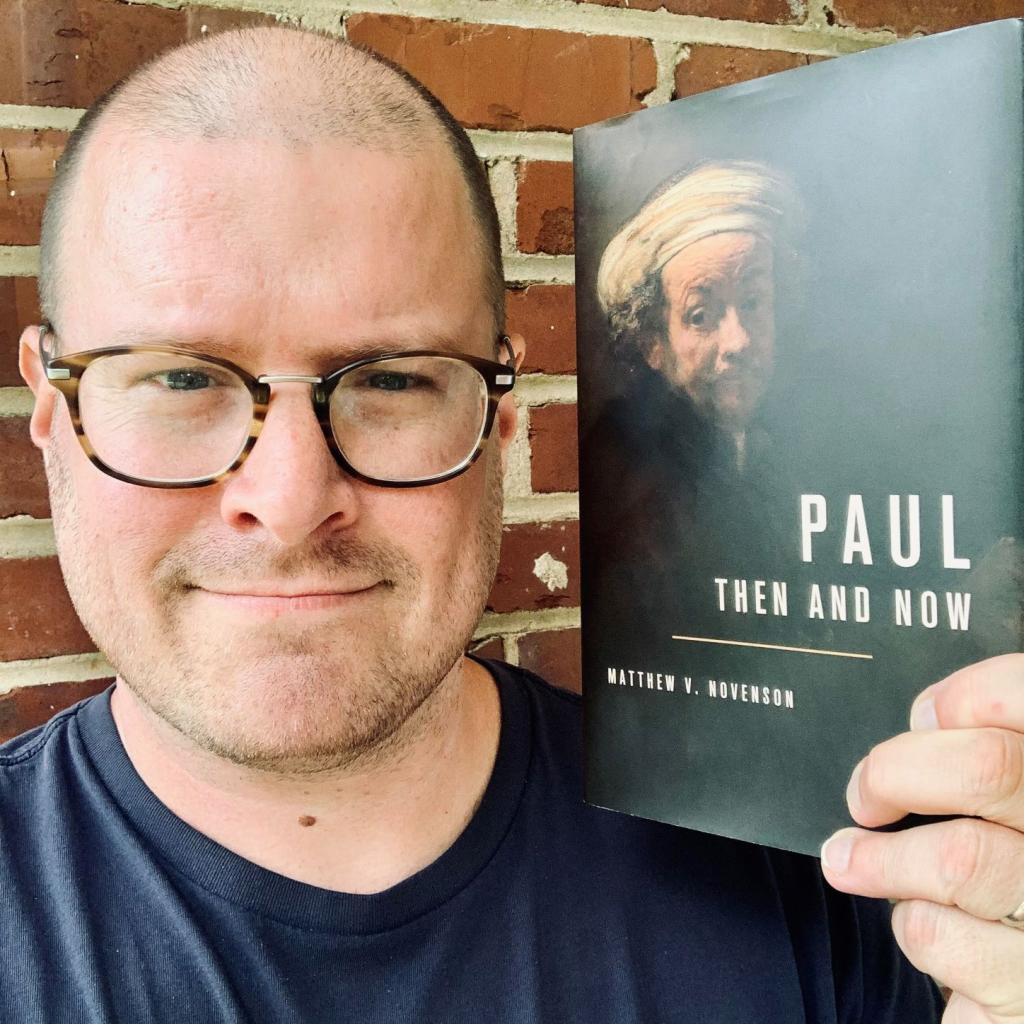
The latter is a separate issue. My own view, which I try to lay out in Paul, Then and Now, is that much of what divides us boils down to hermeneutics—different basic stances toward the texts, and an inability or unwillingness to tolerate other people’s stances. As I explain in the book, I myself am a pretty strong hermeneutical relativist. I can tolerate an extremely wide array of stances toward the texts, in part because I have sympathy with many of them. But I recognize that I am in the minority in this respect. I hope the book might nudge some readers a bit closer to my way of seeing this issue.
Oropeza:
Thank you, Matt. It’s been a pleasure discussing Paul with you!
***
Notes
[1] For a deeper look at various possible interpretations of 2 Cor 4:4, click on this earlier Patheos post of mine on the subject: “Who is the God of this Age? Five Views on 2 Corinthians 4:4.






